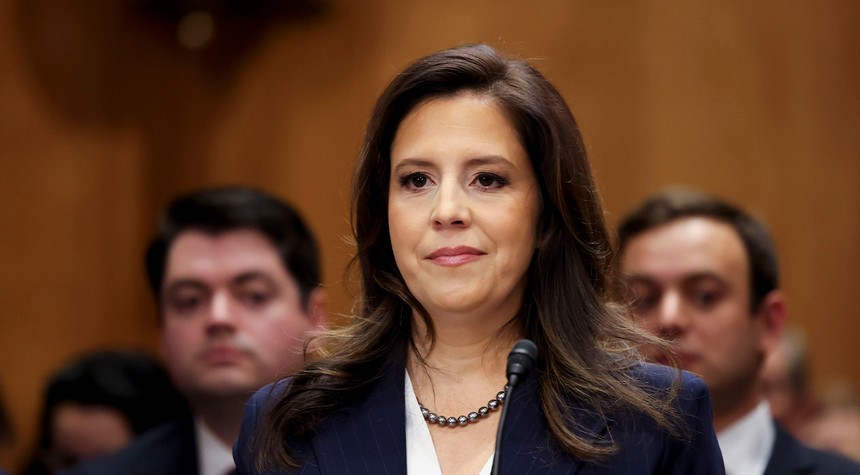Courage, as they say, is not the absence of fear but the willingness to stand firm when the stakes are highest. On Monday night at the Museum of Modern Art in Manhattan, Representative Elise Stefanik demonstrated precisely that quality as she accepted the World Jewish Congress’ most prestigious honor, the Theodor Herzl Award.
The timing carries weight. Just days after announcing her campaign for New York governor, Stefanik stood before 400 guests to receive recognition for her unwavering stand against antisemitism, a fight that has defined much of her recent congressional tenure and catapulted her into the national spotlight.
Ronald Lauder, the businessman and former U.S. ambassador to Austria under President Ronald Reagan, presented the award. Established in 2012, this honor represents the highest recognition the World Jewish Congress bestows, reserved for those who embody Theodor Herzl’s vision of a secure and self-reliant Jewish people.
Stefanik’s remarks carried the weight of someone who understands that moral clarity has become a rare commodity in American institutions. She thanked Lauder for his leadership and praised the World Jewish Congress as “the diplomatic voice and moral conscience of the Jewish people across the globe.”
But the congresswoman’s most powerful moment came when she recalled the December 2023 congressional hearing that changed everything. Facing the presidents of Harvard, MIT, and the University of Pennsylvania, Stefanik posed what should have been the simplest question in American higher education.
“Does calling for the genocide of Jews violate your university’s code of conduct?” she asked.
The answer should have been immediate and unequivocal. Instead, one after another, these leaders of America’s most prestigious institutions offered the same morally bankrupt response: “It depends on the context.”
“Let me be clear,” Stefanik said Monday night. “It does NOT depend on the context.”
That exchange, now viewed millions of times, sparked what Stefanik rightly called “a global reckoning” in higher education. The fallout was swift and consequential. Harvard’s president resigned. The University of Pennsylvania’s president stepped down. The mask had been ripped away, revealing the rot at the heart of institutions that once stood as beacons of American excellence.
This is not abstract political theater. Jewish students on American campuses have faced harassment, intimidation, and violence while administrators equivocated and parsed words. Stefanik’s questioning cut through the academic double-speak and forced a moment of accountability that decades of polite dialogue had failed to achieve.
Now, as she launches her gubernatorial campaign, Stefanik carries this same moral clarity into a state desperately in need of leadership. She spoke of defending “the very Western values that have shaped America,” a phrase that once would have been uncontroversial but now requires courage to utter in certain circles.
New York faces serious challenges: affordability, taxation, economic stagnation. These are the bread-and-butter issues that drive voters to the polls. But Stefanik’s acceptance of this award reminds us that leadership requires more than policy prescriptions. It demands the willingness to stand for principle when the pressure to remain silent or equivocate is overwhelming.
The question for New York voters will be whether they want a governor who has demonstrated that kind of backbone, who understands that some questions have only one acceptable answer, regardless of context, politics, or pressure from the elite.
That is the story unfolding as Stefanik transitions from congressional champion of moral clarity to candidate for governor of America’s fourth-largest state.
Related: Tennessee State Representative’s Anti-Tax Cut Votes Put Campaign Rhetoric Under Scrutiny


